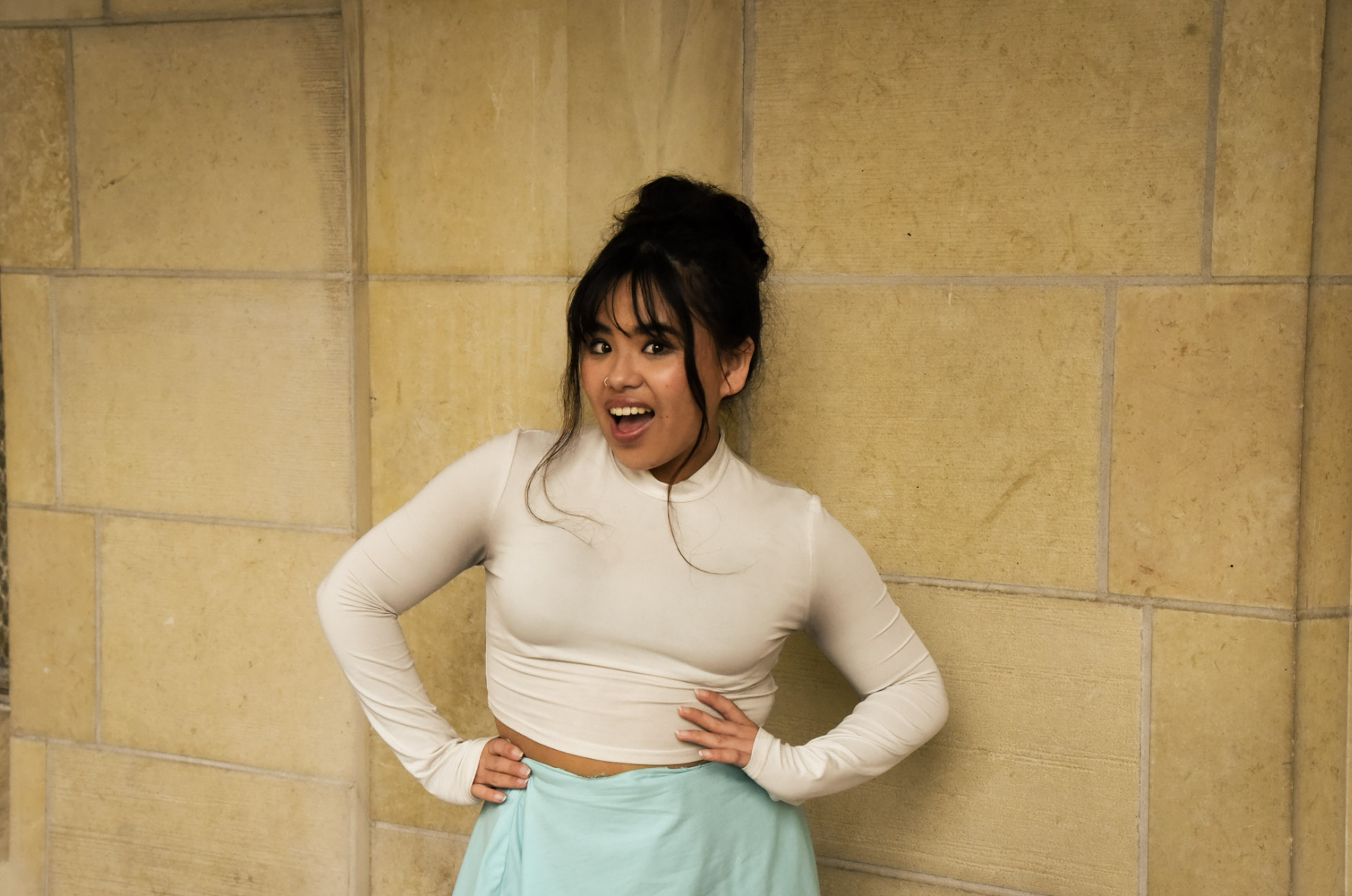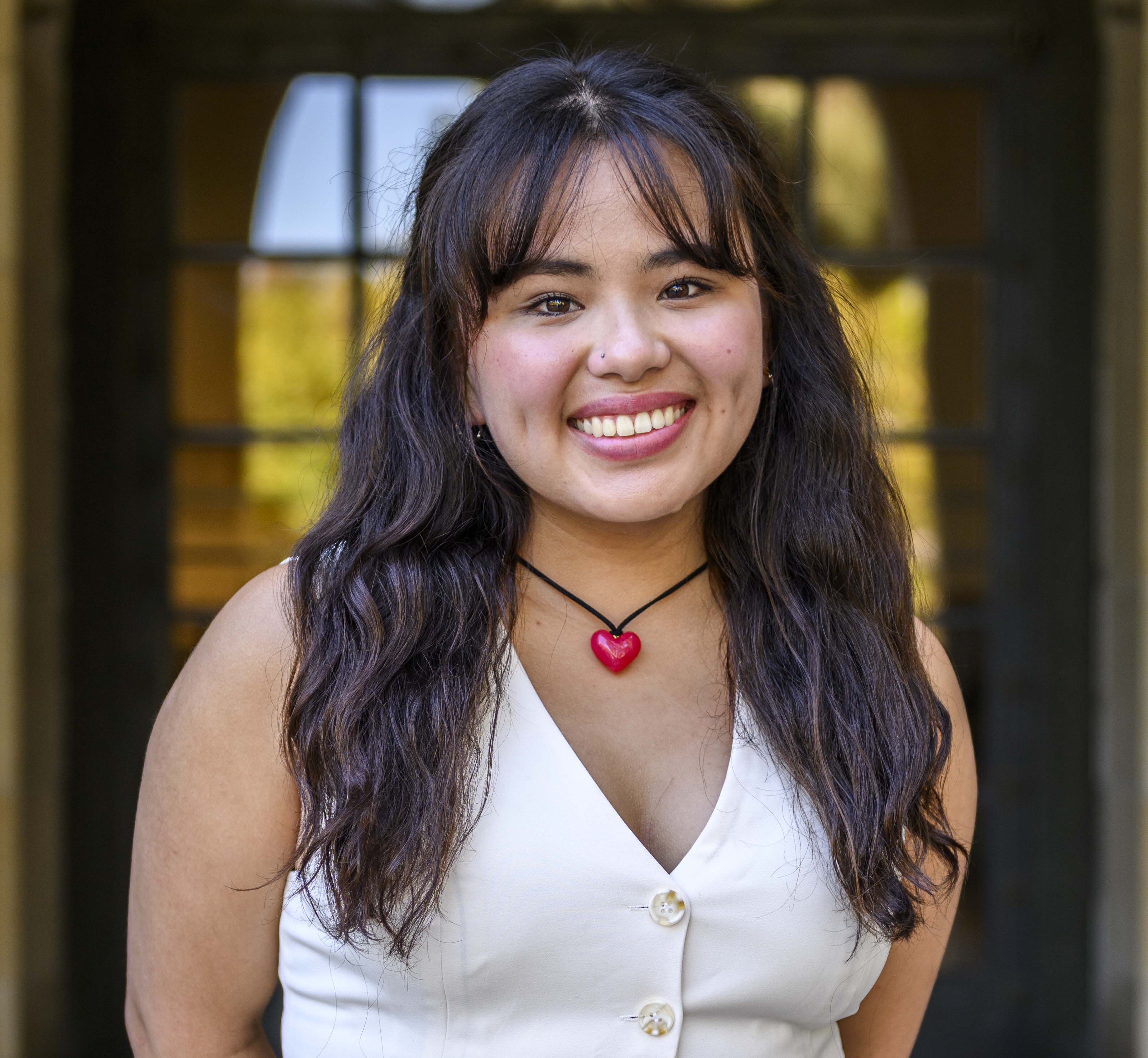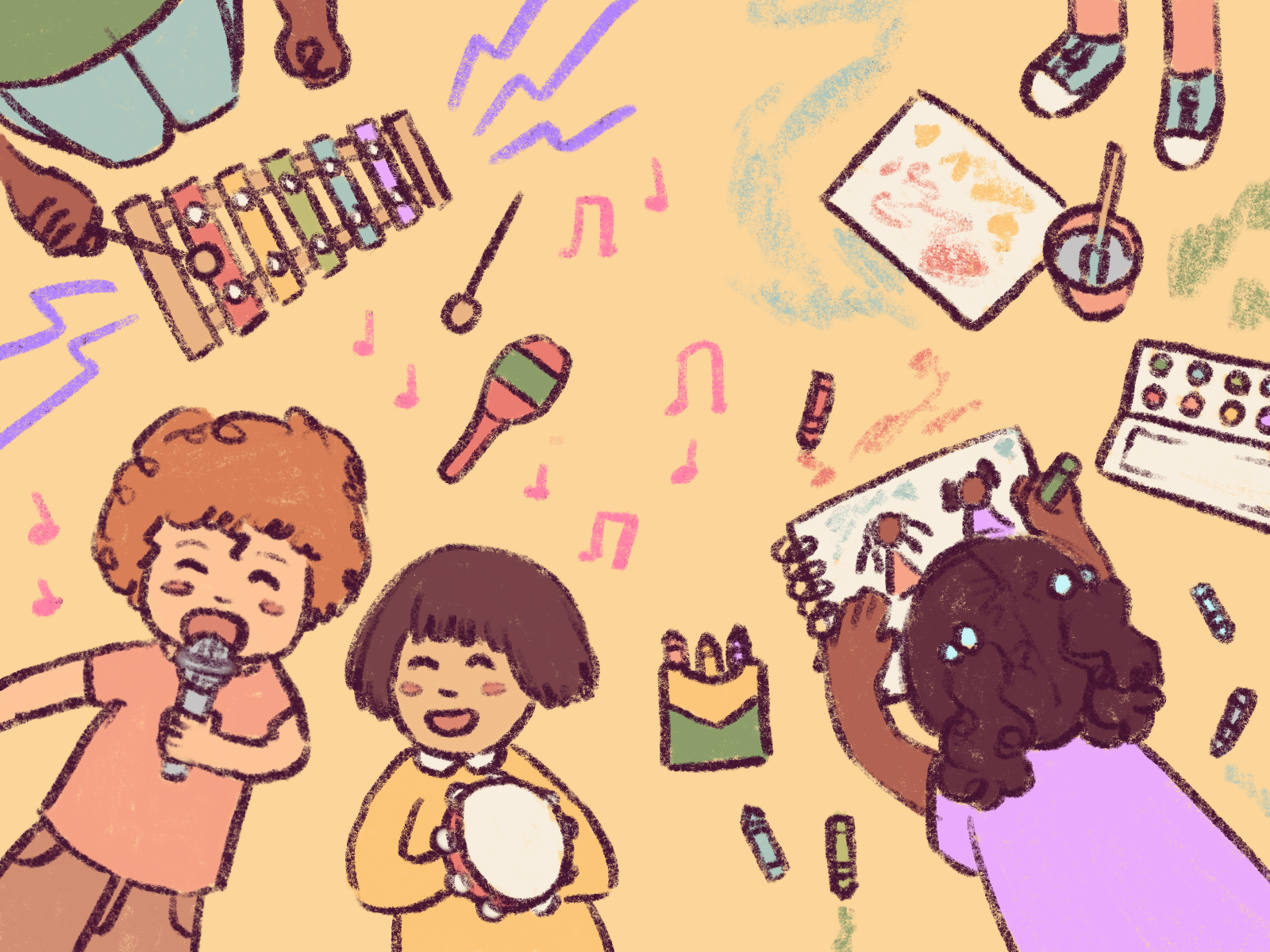Opinion: Access to the arts should not be limited by class, race or neighborhood

Opinion columnist Talia Sajor poses for a photo. (Courtesy of Elizabeth Karlin and Cate Dark)

By Talia Sajor
April 27, 2023 9:16 p.m.
Growing up, I have always been captivated by the world of arts and its limitless possibilities.
From drawing and painting to dance and music, I wanted to do it all. Yet while I was adamant to become some form of artist, the city I grew up in unfortunately did not share that same outlook on the arts.
Just about an hour northwest of Los Angeles, Oxnard – where I have lived my entire life – barely funded creative programs, which posed problems for me once I reached middle school. As I began to take a particular interest in theater, I was incredibly excited to join different clubs and engage in my artistic hobbies. But, to my dismay, my school lacked any sort of drama club.
Not even a band program was in sight.
Upon entering high school, I was pleased to discover there was a wider range of clubs I was able to join, this time including a drama club. As I became more involved, I found myself surrounded by a group of ambitious and creative students who were unfortunately left to fend for themselves by a school administration that barely acknowledged their existence.
At a low-income high school that received federal funding under Title I to help fulfill educational needs, it came as no surprise that most of our money was geared toward the more traditional academic clubs and sports teams. As an extracurricular activity that didn’t fall under this category, the drama club had a minimal budget and a lack of structure or guidance from any staff members.
Additionally, students were encouraged to pursue more practical professions such as law, medicine and academia because of the greater job security and higher incomes. On the other hand, the arts were viewed as nothing more than frivolous hobbies instead of respectable and attainable career paths.
Survival and stability were prioritized over pursuing one’s passions and interests.
Having not found support within Oxnard, I decided to instead look elsewhere to fulfill my desire to perform. I was incredibly fortunate to have supportive parents who were willing to commute to neighboring cities that, ironically enough, had thriving artistic communities in the theatrical arts.
But when I was finally able to dabble in theater in the way that I had been craving for years, I still felt a sense of alienation from my fellow cast members.
Many of them were already close friends after participating in previous productions together and from attending the same school and theater programs since they were little. Although, what set me apart as an outsider the most was that I was the only person of color, who was also from a different, lower-income city, in direct contrast to their wealthy, white environment.
I never intended to become any sort of professional actress or even enter the entertainment industry. But even if I wanted to, it seemed like a pipe dream because of the lack of support and access within my community.
It eventually reached a point where it all became too much. From the financial burden of spending hundreds of dollars just to participate in productions to the hours of commuting to the lack of community and inclusivity I felt, I decided to shelve theater and instead put my energy elsewhere.
When I arrived at UCLA five years later, I found myself filled with excitement to finally dip my toes back into aspects of the arts I never had access to growing up. But even with the newfound diversity on campus, feelings of impostor syndrome lingered, as many of my colleagues came from cities that provided artistic experiences and extensive training that I wasn’t afforded.
Despite all of this, I took advantage of opportunities that I could only ever dream of when I started my academic career at UCLA. I have been able to learn about so many corners of the artistic world and grow as an artist in ways I never could have imagined. As an active member in numerous clubs, this year’s Daily Bruin theater | film | television editor and even just a student, I have found the creative outlet I needed.
And most importantly, I was able to find my community and place among like-minded individuals.
But students shouldn’t have to go the extra mile to be able to have these experiences. Access to artistic spaces shouldn’t be gatekept with a $500 fee. Traveling 30 minutes away shouldn’t have to be a necessity to be able to participate in a musical. And, of course, attending a university like UCLA shouldn’t be a requirement to find one’s place within these communities.
Being able to participate in productions and art-related activities – casually or professionally – has become a privilege that is disproportionately denied to marginalized and low-income cities, depriving them of the resources to explore the vast array of possible creative outlets.
While my future is uncertain, I have no doubt the arts will continue to be an integral part of my life and who I am as a person. Being able to express myself creatively has helped give me a sense of purpose and identity.
Which, at the end of the day, is something that everyone should be able to discover.




